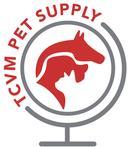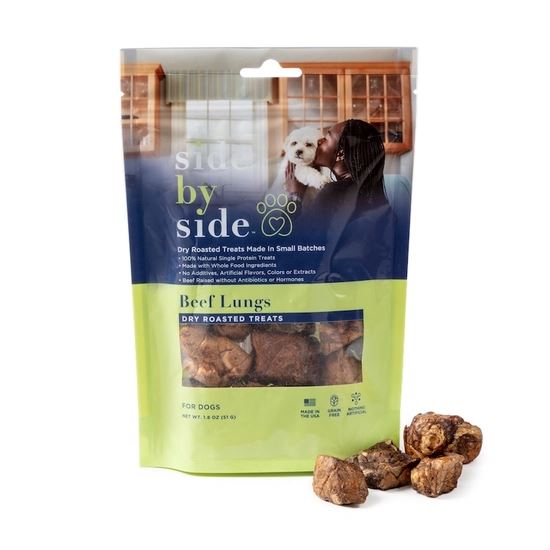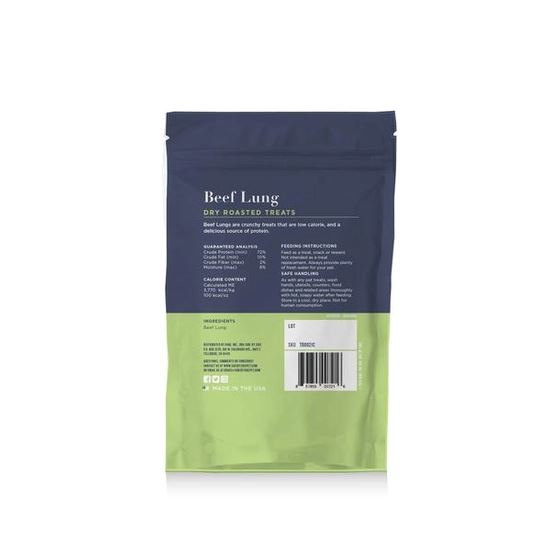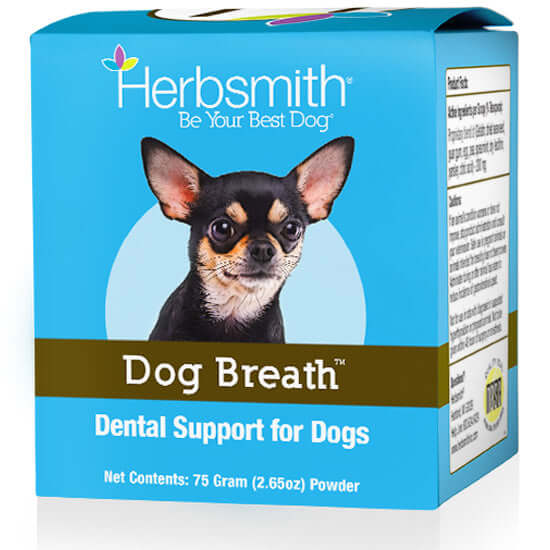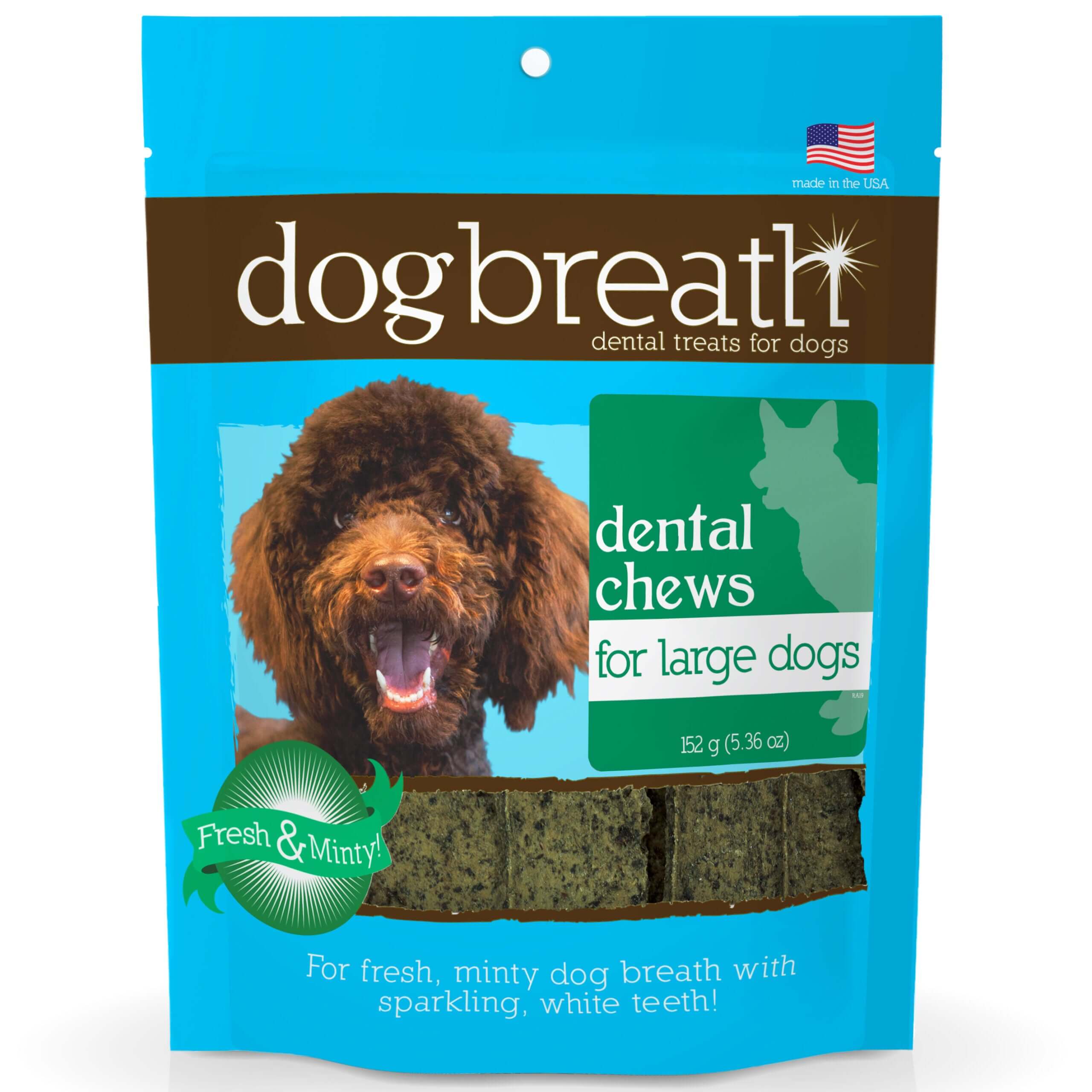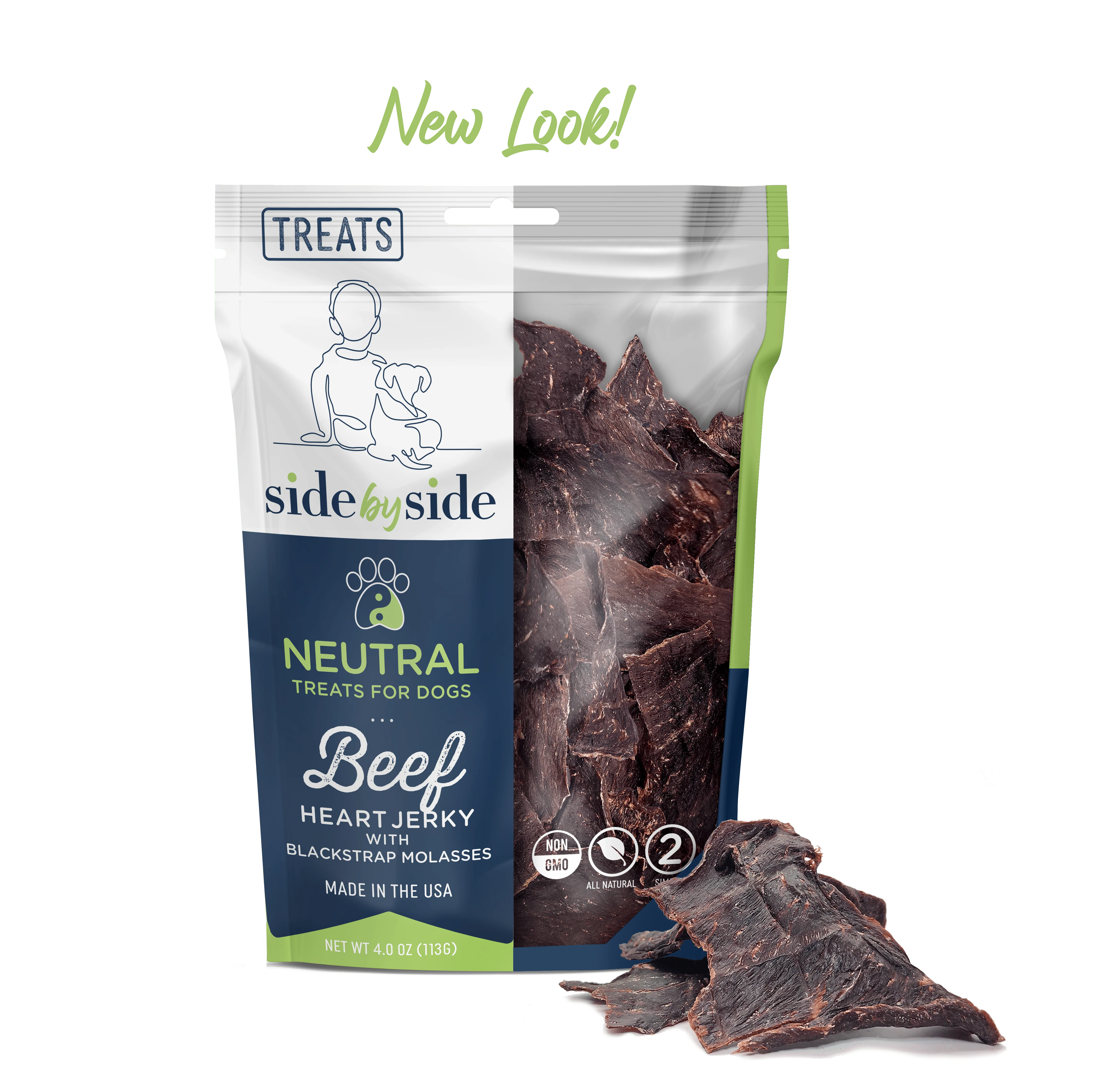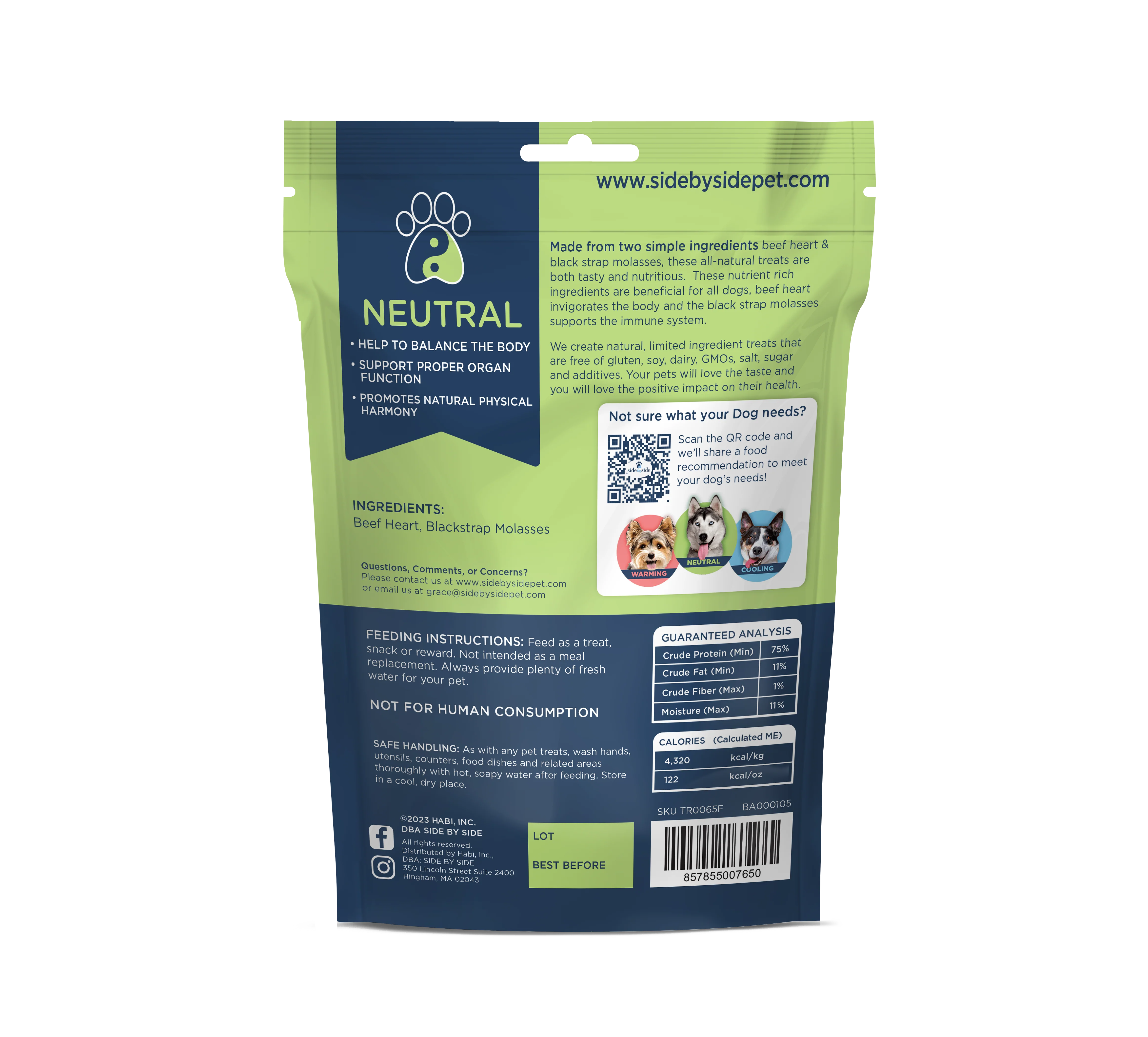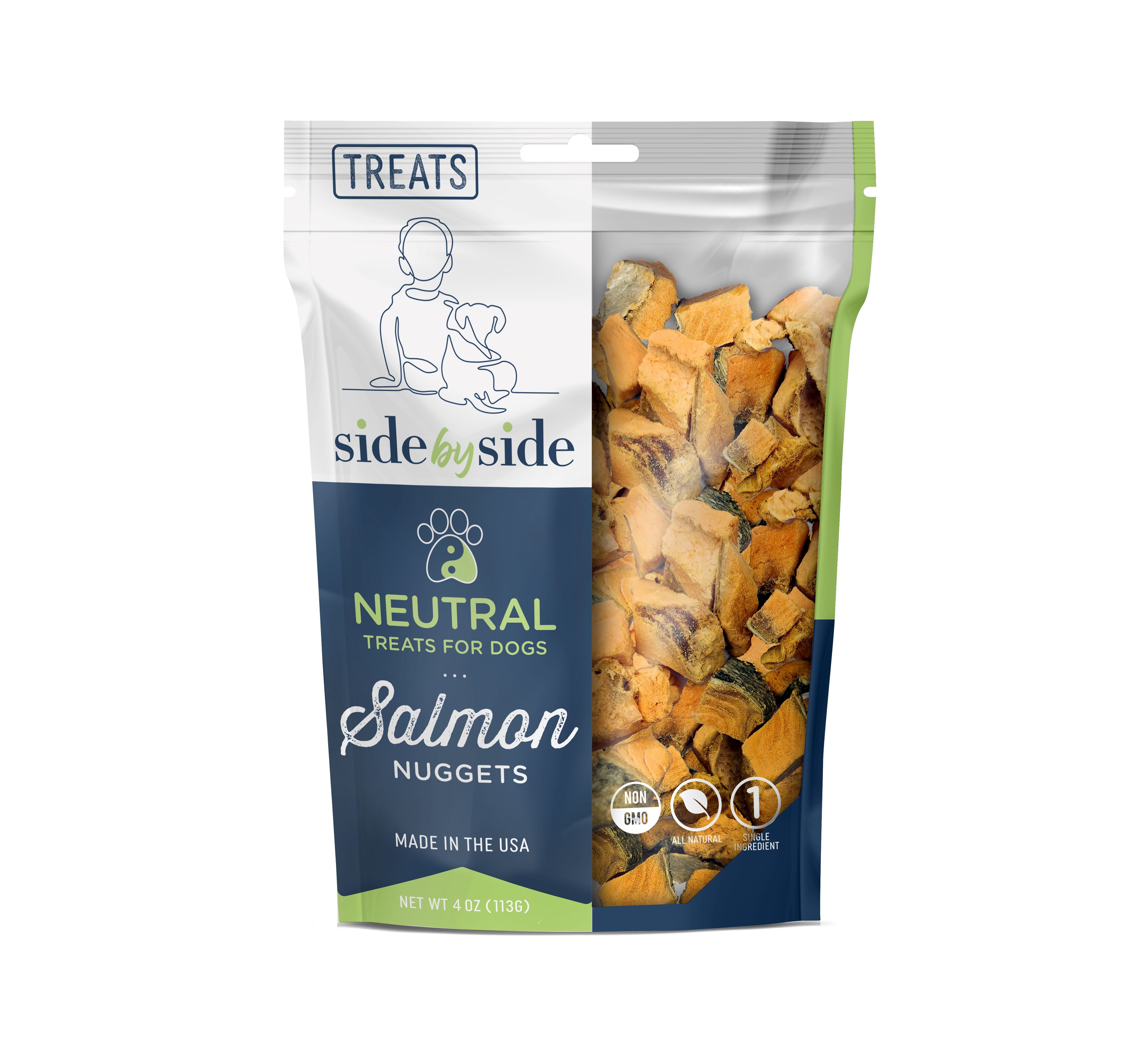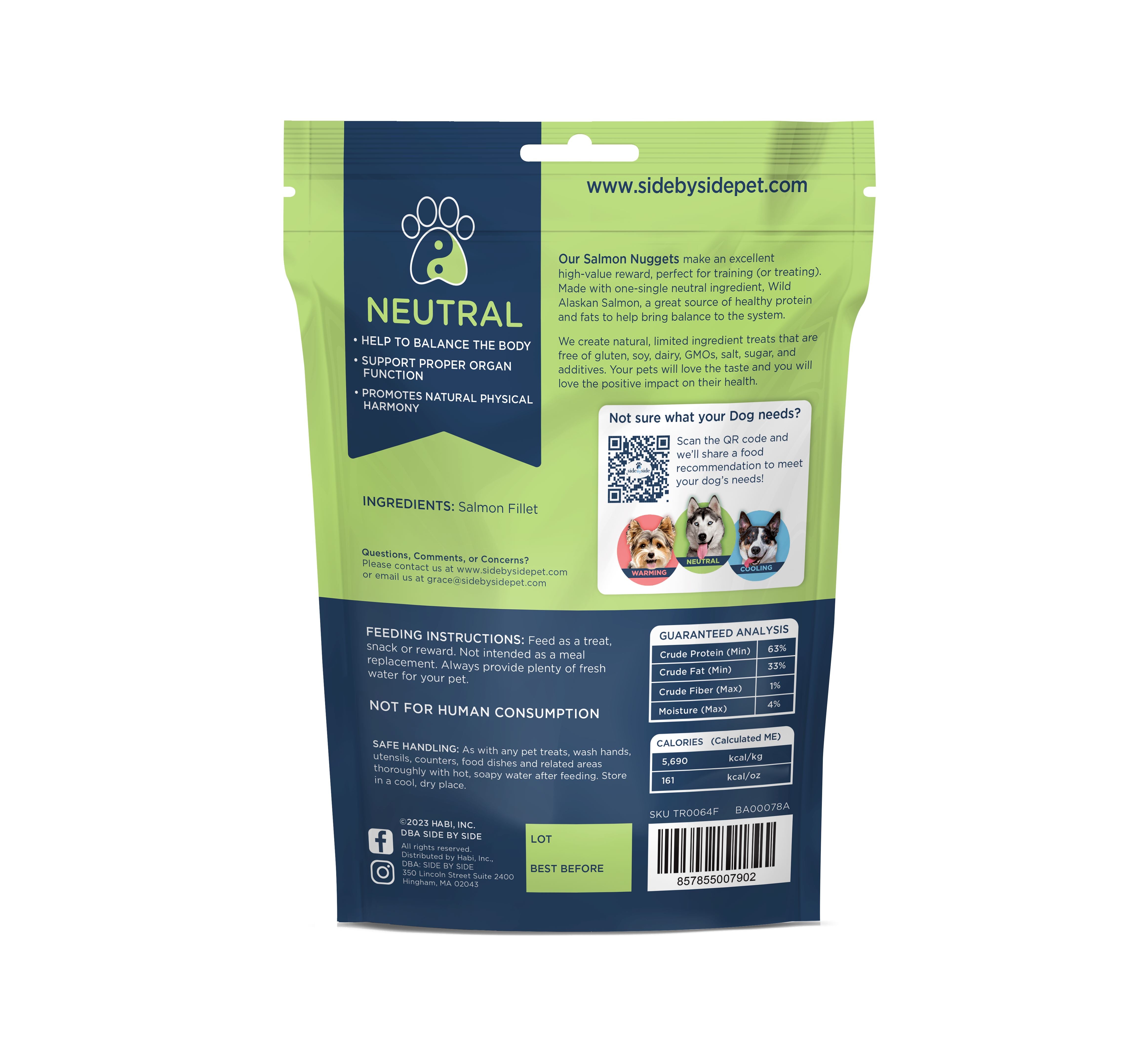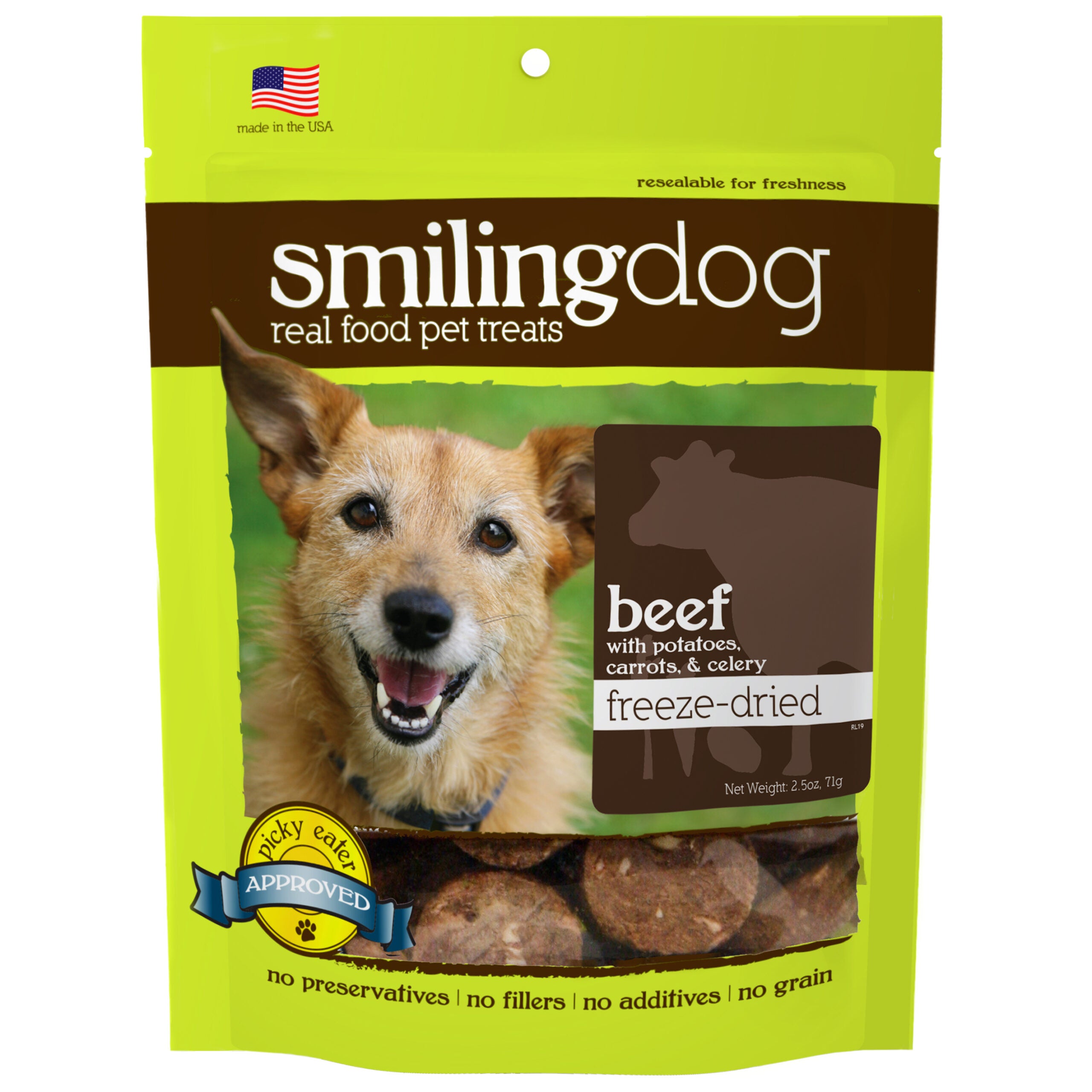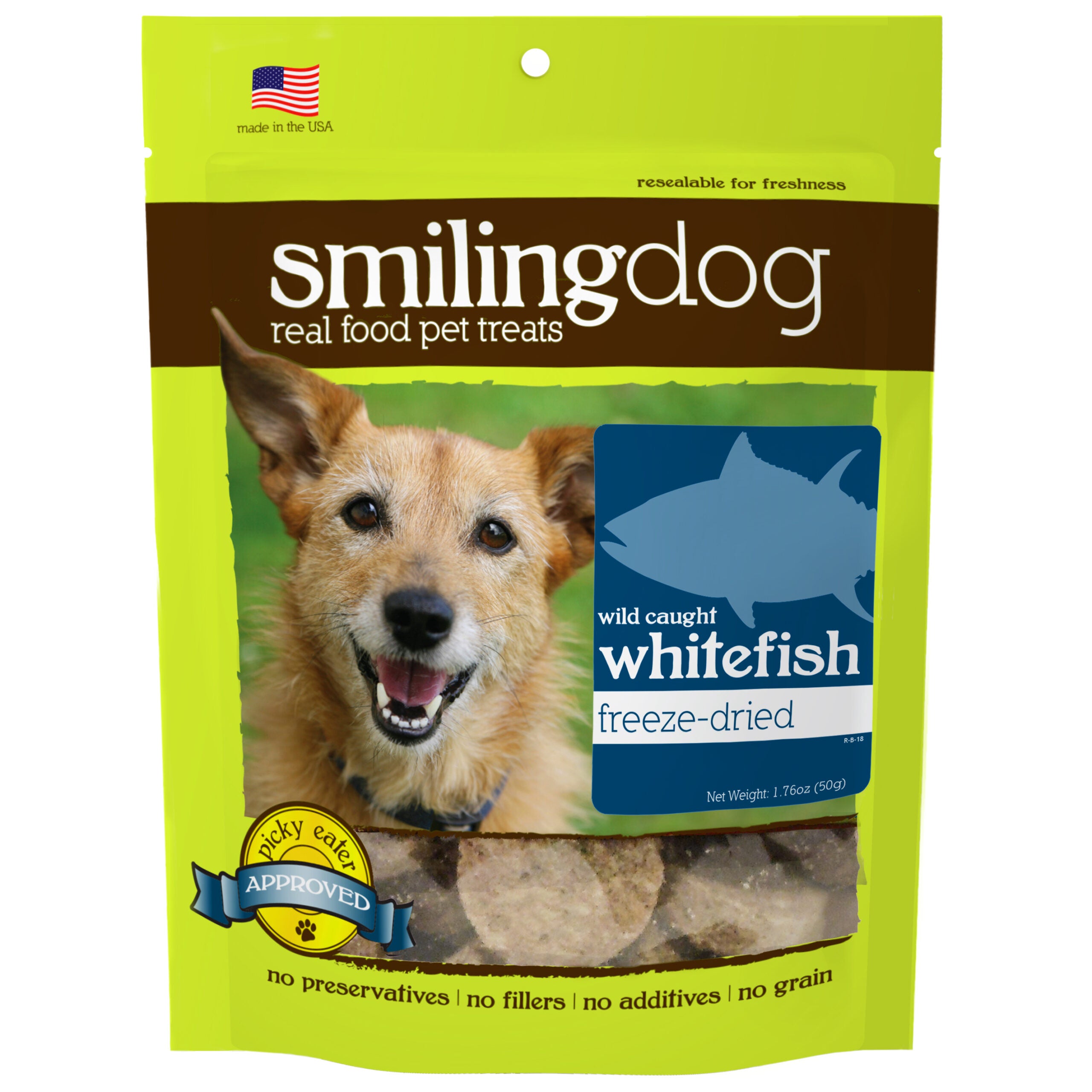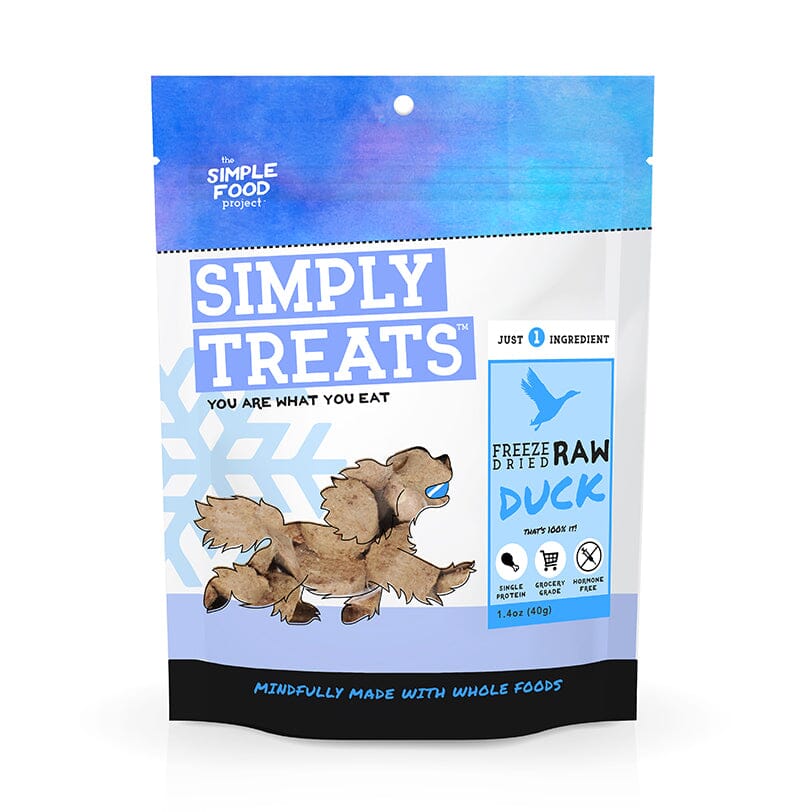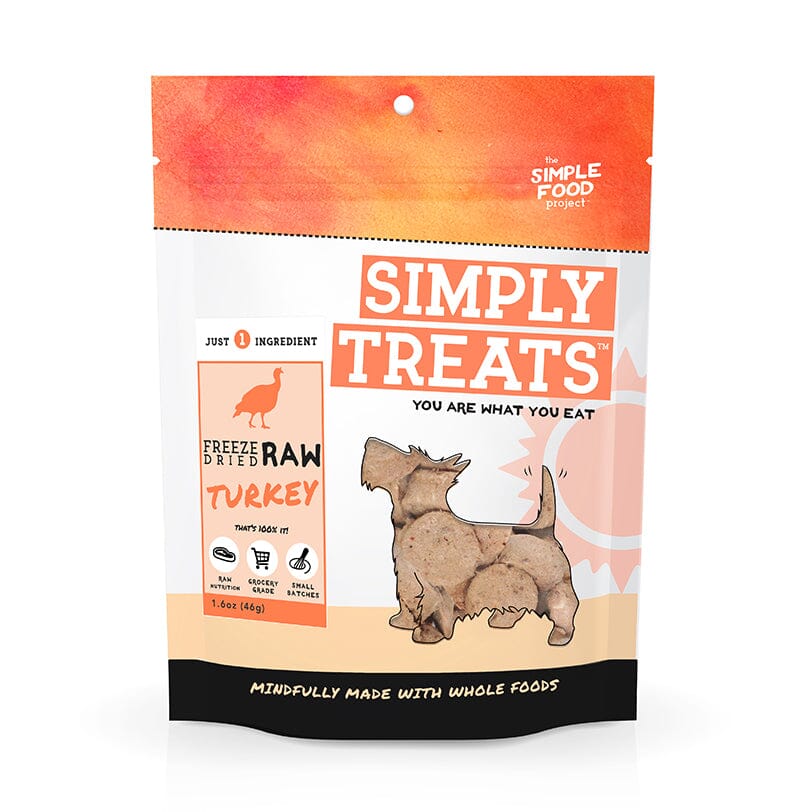
What is Sodium Ascorbate & How Will it Help My Pet?

What is Sodium Ascorbate?
Sodium ascorbate is a form of vitamin C commonly used as a dietary supplement. It is the sodium salt of ascorbic acid, which is the chemical name for vitamin C.
Sodium ascorbate has the same basic properties as ascorbic acid but is less acidic.
We prefer sodium ascorbate to regular vitamin C supplements because it's less acidic.
- Being less acidic, sodium ascorbate doesn't cause gastrointestinal upset and cramping.
- Sodium ascorbate is absorbed better and stays in the body longer
- Sodium ascorbate has a neutral, almost flavorless taste so, pets (even cats!) do not taste it in their food.
- In powder form, sodium ascorbate is easily measured and mixed into wet food or treats.
What Does Sodium Ascorbate Do?
Vitamin C is an essential nutrient that is crucial in various biological processes in your pet's body. It is known for its antioxidant properties, which help protect cells from damage caused by free radicals.
It is also essential for synthesizing collagen, a protein vital for the health of connective tissues, skin, blood vessels, and bones. Additionally, it helps absorb iron from plant-based sources and supports the immune system.
Health Benefits
Supplementing your pet's diet with sodium ascorbate supplies his/her body with additional vitamin C, which provides several benefits.
- Anti-inflammatory effects: Sodium ascorbate exerts potent anti-inflammatory effects by reducing oxidative stress and modulating immune responses. It acts as a powerful antioxidant, neutralizing free radicals that drive inflammation, and helps regenerate other antioxidants like glutathione and vitamin E. It lowers levels of pro-inflammatory cytokines such as TNF-α, IL-6, and CRP, while supporting the function of regulatory immune cells that promote the resolution of inflammation. Additionally, it helps protect tissues from damage, supports collagen repair, and improves endothelial function, making it beneficial in both acute and chronic inflammatory conditions.
- Antioxidant activity: Vitamin C, including sodium ascorbate, acts as an antioxidant, which means it helps protect cells from damage caused by free radicals. Free radicals are unstable molecules that can cause oxidative stress and contribute to the development of various health conditions. By neutralizing free radicals, vitamin C helps reduce oxidative damage and supports overall cellular health.
- Antiviral/antibacterial effects: Oral sodium ascorbate enhances immune function, increases white blood cell activity, and supports interferons and antibody production. It helps inhibit viral replication, supports epithelial barrier integrity, and boosts neutrophil and macrophage function against bacteria. Additionally, it promotes collagen synthesis for tissue repair and may disrupt bacterial biofilms, enhancing antibiotic effectiveness.
- Collagen synthesis: Sodium ascorbate is vital for the synthesis of collagen, a protein that is essential for the structure, strength, and elasticity of various tissues in the body, including skin, blood vessels, tendons, ligaments, and cartilage. Collagen plays a vital role in wound healing, maintaining healthy skin, and supporting the health of joints and connective tissues.
- Immune system support: Vitamin C supports the immune system. It enhances the function of various immune cells and helps stimulate the production of antibodies. Adequate vitamin C levels are essential for maintaining a healthy immune response, reducing the severity and duration of common infections, and promoting overall immune system function.
- Iron absorption: Sodium ascorbate enhances the absorption of non-heme iron, which is the form of iron found in plant-based foods. Vitamin C helps convert non-heme iron into a more readily absorbable form, increasing its bioavailability. This is particularly beneficial for pets not eating enough or those with lower iron intake or absorption.
- Collateral effects: Vitamin C, including sodium ascorbate, is associated with various potential health benefits, such as supporting cardiovascular health, promoting healthy aging, and supporting cognitive function.
Health Challenges
Our vets use sodium ascorbate in their clinics to help with many different health challenges, including (but not limited to):
- abcessed teeth
- allergies
- ankylosing spondylitis
- asthma
- bacterial infections
- burns
- cancer
- constipation
- degenerative joint disease
- feline AIDS
- feline leukemia
- gingivitis & stomatitis
- hip dysplasia
- immune-mediated diseases
- influenza
- injuries
- kennel cough
- spinal issues
- surgery recovery
- toxin exposure
- upper respiratory infections
- viral pneumonia
- viruses
In our clinics, sodium ascorbate is especially beneficial for pets dealing with chronic inflammation or immune system challenges. Scientifically, vitamin C is crucial in supporting the body's natural healing processes. When pets suffer from long-term illness, their bodies often become depleted of vitamin C due to increased metabolic demands and oxidative stress. Since dogs and cats experiencing chronic conditions may struggle to maintain adequate vitamin C levels, supplementation helps restore this essential nutrient to a healthy range.
Supplementing with sodium ascorbate replenishes depleted stores and delivers powerful antioxidant, anti-inflammatory, and antiviral benefits. Reducing free radical damage and modulating inflammatory pathways provides the extra support your pet's body needs to repair tissues, regulate immune responses, and recover more effectively. This allows the body to do what it is designed to do (heal itself) more efficiently and naturally.
History of Use
I first learned about the magic of Vitamin C from The Very Healthy Cat Book by Wendell O. Belfield, DVM. The copy I have is an old paperback from 1983.
In his book, Dr. Belfield calls Vitamin C "Nature's Great Detoxifier." He then quotes Edward J. Calabrese, an environmental health expert at the University of Massachusetts, who said, "Vitamin C markedly affects the toxicity of greater than 50 pollutants, many of which are ubiquitous in the air, water, and food environments."
Tadpole Experiment
Dr. Belfield also mentions a Chinese study involving tadpoles and lead. Researchers placed 100 tadpoles in water containing a high level of lead. Within 24 hours, eight tadpoles died.
The living tadpoles were then divided, half placed in a tank of plain water and half placed in a tank of plain water plus vitamin C. After six days, 88% of the tadpoles in the plain water tank had died, while all of the tadpoles in the vitamin C-treated water were still alive.
1939 Lead Detox
In another instance, he wrote about how, in 1939, the Brain Bio Center in Princeton, NJ, developed an effective combination of 2 g of vitamin C and 30 mg of zinc gluconate daily, which dramatically improved the health of lead workers. The vitamin C and zinc detoxed the lead out of the workers' bodies.
Other interesting facts and studies included using vitamin C to detox cadmium from quail, blocking the formation of nitroso compounds in test animals, and inhibiting the release of histamine.
Interesting, right?! I thought, "Why isn't this stuff taught in school?" and "Why aren't more people working with vitamin C?"
At the time, I was working in Dr. Marc Smith's clinic, Natchez Trace Veterinary Services. He decided to implement some vitamin C protocols in the clinic, and they were a success! He still uses them today.
Another excellent resource for learning more about vitamin C is the Linus Pauling Institute website. The site is geared towards humans, but the general information applies to pets. Warning: If you visit this site, you'll probably start taking more vitamin C yourself!
Does My Pet Need a Vitamin C Supplement?
Dogs and cats create their own vitamin C in the form of ascorbic acid by synthesizing it in their liver.
In addition, most animals automatically produce more ascorbic acid when facing a toxic challenge.
The above facts consequently lead many people to believe dogs and cats don't need to ingest vitamin C to be healthy.
But what happens if toxins overwhelm the animal's ability to detoxify themselves by depleting all the self-made vitamin C? The result is sickness, or even death.
Stress Depletes Natural Vitamin C
However, toxins are not the only cause of vitamin C depletion in pets. Stress, both physical and emotional, is the most significant cause.
Below are some examples of situations that can deplete your pet's natural vitamin C.
Physical Stressors
Physical stressors for dogs and cats include:
- Uncomfortable environment
- Exposure to toxins
- Extreme heat or cold
- Chronic illness
- Overexertion
- Injury or physical trauma
Emotional Stressors
Emotional stressors for dogs and cats include:
- Interruption of daily routines
- Moving to a new home
- Travel
- Dog/Cat shows
- Sudden noises like fireworks and thunder
- New household members, like a new pet or baby
- Multiple animals in the household who don't get along
- Vet, groomer, kennel, or cattery visit
- Another cat moving into the territory
- Being alone in the home too much
- Lack of exercise/boredom
It's up to you, with the help of your vet, to decide if your pet will benefit from supplementing with sodium ascorbate.
How Much Sodium Ascorbate Should I Give My Pet?
First, make sure you use sodium ascorbate, not ascorbic acid. As mentioned earlier, sodium ascorbate has a neutral pH, so it has fewer gastrointestinal side effects than ascorbic acid.
Ascorbic acid is the most common form of vitamin C, but its acidic pH makes it taste bad and causes gastrointestinal distress. Therefore, we do not recommend using ascorbic acid.
How Much Sodium Ascorbate to Supplement
Standard recommended supplementation is:
- Pets under 10 pounds: 1/16 - 1/4 teaspoon mixed in each meal
- Pets 11-30 pounds: 1/4 - 1/2 teaspoon mixed in each meal
- Pets 31-50 pounds: 1/2 - 3/4 teaspoon mixed in each meal
- Pets 51-75 pounds: 3/4 - 1 teaspoon mixed in each meal
- Pets over 75 pounds: 1 teaspoon + 1/4 teaspoon for every 10 pounds over 75 mixed in each meal
However, in acute health situations or with chronic diseases, our founding veterinarians often recommend high-dose sodium ascorbate, titrating to bowel tolerance, in their clinics.
What Are The Warnings and Side Effects?
Sodium ascorbate is water-soluble. It's absorbed in the small intestine, and what your pet's body cannot use is excreted immediately, making it non-toxic. However, in very high doses, it may cause loose stools.
Supplemental vitamin C increases urinary oxalate concentrations, but whether this elevates the risk for kidney stones is not yet known. Those predisposed to kidney stone formation may consider avoiding high-dose vitamin C supplementation (Oregon State University, Linus Pauling Institute).
Every 1,000 mg of sodium ascorbate contains 111 mg of sodium. However, the sodium content is safe for pets at the recommended dose. However, if your pet has hypertension, diabetes, kidney problems, or is on a low-salt diet, use only with your veterinarian's supervision, especially at high doses.
Remember to always talk to your veterinarian before adding any new supplements to your pet's health plan.
Sources:
-
O. Belfield, W., DVM, & Zucker, M. (1983). The Very Healthy Cat Book. Orthomolecular Specialties.
-
Schoen, A. M., & Wynn, S. G. (1998). Complementary and Alternative Veterinary Medicine: Principles and Practice.
-
Vitamin C. (n.d.). https://lpi.oregonstate.edu/book/export/html/148

